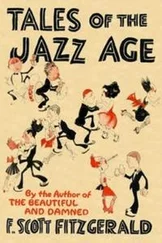A. L. O. E. - Hebrew Heroes - A Tale Founded on Jewish History
Здесь есть возможность читать онлайн «A. L. O. E. - Hebrew Heroes - A Tale Founded on Jewish History» — ознакомительный отрывок электронной книги совершенно бесплатно, а после прочтения отрывка купить полную версию. В некоторых случаях можно слушать аудио, скачать через торрент в формате fb2 и присутствует краткое содержание. Жанр: foreign_antique, foreign_prose, на английском языке. Описание произведения, (предисловие) а так же отзывы посетителей доступны на портале библиотеки ЛибКат.
- Название:Hebrew Heroes: A Tale Founded on Jewish History
- Автор:
- Жанр:
- Год:неизвестен
- ISBN:нет данных
- Рейтинг книги:4 / 5. Голосов: 1
-
Избранное:Добавить в избранное
- Отзывы:
-
Ваша оценка:
- 80
- 1
- 2
- 3
- 4
- 5
Hebrew Heroes: A Tale Founded on Jewish History: краткое содержание, описание и аннотация
Предлагаем к чтению аннотацию, описание, краткое содержание или предисловие (зависит от того, что написал сам автор книги «Hebrew Heroes: A Tale Founded on Jewish History»). Если вы не нашли необходимую информацию о книге — напишите в комментариях, мы постараемся отыскать её.
Hebrew Heroes: A Tale Founded on Jewish History — читать онлайн ознакомительный отрывок
Ниже представлен текст книги, разбитый по страницам. Система сохранения места последней прочитанной страницы, позволяет с удобством читать онлайн бесплатно книгу «Hebrew Heroes: A Tale Founded on Jewish History», без необходимости каждый раз заново искать на чём Вы остановились. Поставьте закладку, и сможете в любой момент перейти на страницу, на которой закончили чтение.
Интервал:
Закладка:
"I do think it – I do firmly believe it," said Hadassah, raising her eyes towards heaven; "verily the dream that visited me last night must have been sent to assure me of this."
"Tell me your dream, mother," cried Zarah, who always addressed by this title the parent of her father.
"Come with me into the front room, my child; leave Anna to prepare our pottage of lentiles, and I will tell you my dream," said Hadassah, leading the way into what might, in a European dwelling, have been called the sitting-room. This, with the place which they had just quitted, and two sleeping apartments above, which were reached by a rough stair on the exterior of the dwelling, constituted all the accommodation of Hadassah's small house, if we except the flat roof, surrounded by a parapet, often used by the ladies as a cool and airy retreat.
Hadassah and her grand-daughter seated themselves in a half-reclining posture upon skins that were spread on the tiled floor; and while Zarah listened with glistening eyes, the Hebrew widow told her dream to the maiden.
"Methought, in the visions of the night – for I snatched a brief hour of repose after our return from the burial – I beheld two women before me. They were both goodly to look upon, with a strange spiritual beauty not seen on this side of the tomb. The feet of the women rested not on the earth, but they gently floated above it; the air seemed purpled around them, and fragrant with the odour of myrrh. The first woman bore in her hand a scarlet cord, the other a bundle of golden corn.
"'Hadassah,' said the first, 'I am Rahab, of the doomed race of Canaan, yet received as a daughter of Abraham. For the sake of David, born of my line, and for the sake of Him who was the Root of Jesse (Isa. xi. 10) and shall be the Branch (Isa. xi. 1), have pity upon the stranger.'
"And the second woman, who was exceeding fair, spoke to me in like manner: 'Hadassah, I am Ruth, of the guilty race of Moab, yet received as a daughter of Abraham. For the sake of David, born of my line, and for the sake of Him who was the Root of Jesse and shall be the Branch, have pity upon the stranger.' And so the two bright visitants vanished – and I awoke."
"Would that your dream had been sent to Abishai!" exclaimed Zarah; "then might he not through life have borne the brand-mark of Cain!"
"Hark!" cried Hadassah, suddenly; "was that a groan that I heard?"
Zarah had heard the sound also, and was on her feet and at the door before Hadassah had ended the sentence.
"Oh, mother – it is he – the stranger – he is dying!" exclaimed Zarah, trembling as she bent over the form of Lycidas, which lay stretched on the ground, close to the threshold.
The injuries which the young Greek had received from the dagger and the fall, though severe and dangerous, had not proved fatal. The fresh morning air had restored him to consciousness; unable to rise, Lycidas had yet managed to drag himself feebly along for some distance, till, as he reached the nearest dwelling, the strength of the Athenian had utterly failed him, and he had swooned at the door of Hadassah.
"Bear him in – he bleeds!" said Hadassah; and after calling the strong-armed Anna to aid them, the Hebrew ladies themselves carried the senseless form of the stranger into the house, and beyond the curtain-partition into that back portion of the dwelling described in the beginning of this chapter. For some time undivided attention was given to efforts to restore consciousness to the wounded man. Hadassah, like many of her countrywomen, had knowledge of the healing art. Zarah brought of the balm of Gilead and reviving wine; Anna dragged into the inner room mats and skins, that the sufferer might have something softer to rest upon than the hard floor. Zarah and the servant then retired, by the order of Hadassah, leaving her to examine and bind up the wounds of Lycidas, which she did with tenderness and skill When all had been done which could be done, Hadassah drew aside the curtain-screen, and rejoined Zarah and Anna in the front apartment, where the latter was engaged in removing the crimson stains left by the wounded Greek on the floor and threshold.
"Go on the road, Anna," said the widow; "carefully efface any marks by which a wounded man could be tracked to my dwelling. No one must know that the stranger is here."
"If Abishai heard of it, even your roof would not protect the youth," said Zarah, turning pale at the thought of a repetition, in the sacred precincts of home, of the horrible scene of the previous night. "Oh, mother, think you that the stranger will live?"
"He may; youth can swim through stormy waters," replied Hadassah; "but – may I be forgiven the inhospitable thought! – I would that the Greek had come to any other house rather than to mine."
"So few visitors ever seek this spot – so few strangers ever pass it – we lead lives so retired – we can, better than most, conceal a guest," observed Zarah.
The brow of Hadassah was clouded still. In that small dwelling, with a fair girl under her care, the widow lady was unwilling to harbour for weeks, or more probably months, a man, and that man a Gentile. Anxiously she revolved the matter in her mind, but no other course seemed to open before her. She could not be guilty of the cruelty of turning the helpless sufferer out to die.
"On Abishai's account," said Hadassah, "I dare not seek out the friends of the Greek, if friends he have in Jerusalem, and ask them to bear him thence. To do that, after Abishai's murderous attempt on his life, would be to deliver over Miriam's husband to the executioner's sword. This young man is bound alike by honour and gratitude to preserve silence as to what passed by the grave; but there is nothing to prevent him from seeking, and much to induce him to seek, retribution on a would-be assassin, who violated the pledge of safety given to the Greek. Would, I repeat, that this stranger had come to any house rather than mine!"
"Mother, remember your dream!" exclaimed Zarah, who, in the secret depths of her heart, did not share Hadassah's regret. Compassion for the suffering – admiration for the beautiful and brave, – combined to awaken in the maiden strong interest in the fate of the stranger. Zarah was well pleased that her grandmother's hospitality should be to him some reparation for a deep wrong sustained from one of her family.
"Yes," said Hadassah, thoughtfully; "that dream must have been sent to prepare me for this. The Lord hath given me a work to perform, and He will not let His servant suffer for striving to do His bidding. The wounded stranger, Gentile though he be, needs hospitality, and I dare not refuse it. If the Lord hath guided him to the home of Hadassah, the Lord will send a blessing with him." And trying to stifle her misgivings, the widow lady returned to her guest.
CHAPTER VI.
THE JOURNEY HOME
Before the sun had risen above the horizon on that day, Judas, son of Mattathias, of the noble family of the Asmoneans, started on his long homeward journey. He had not re-entered Jerusalem during the night; almost as soon as he, with the assistance of Joab and Isaac, two of his companions, had filled up with earth the grave of the martyrs, he had skirted the city from the east to the west, and turned his face towards Modin.
It would scarcely have been deemed by any one who might have seen the princely Hebrew ascending the western hill with his quick, firm tread, that the greater part of the preceding night had been spent by him in severe toil, and none in sleep. His soul, filled with a lofty purpose, so mastered the infirmities of the flesh, that the Asmonean seemed to himself scarcely capable of feeling fatigue, and set out, without hesitation, on a journey which would have severely taxed the powers of a strong pedestrian after long uninterrupted repose.
Читать дальшеИнтервал:
Закладка:
Похожие книги на «Hebrew Heroes: A Tale Founded on Jewish History»
Представляем Вашему вниманию похожие книги на «Hebrew Heroes: A Tale Founded on Jewish History» списком для выбора. Мы отобрали схожую по названию и смыслу литературу в надежде предоставить читателям больше вариантов отыскать новые, интересные, ещё непрочитанные произведения.
Обсуждение, отзывы о книге «Hebrew Heroes: A Tale Founded on Jewish History» и просто собственные мнения читателей. Оставьте ваши комментарии, напишите, что Вы думаете о произведении, его смысле или главных героях. Укажите что конкретно понравилось, а что нет, и почему Вы так считаете.











